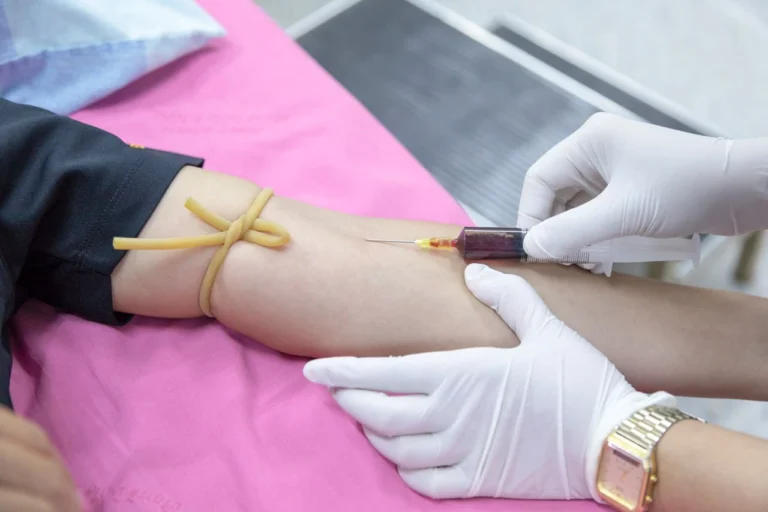Cyrus Selects CYR212 as Candidate for IgG-Driven Autoimmune Diseases
Cyrus Biotechnology, an AI-driven therapeutics company, announced the selection of CYR212 as its clinical development candidate for chronic IgG-driven autoimmune diseases. CYR212 is a next-generation, engineered Immunoglobulin-G (IgG) protease designed to have reduced immunogenicity and extended half-life. The selection follows promising preclinical data demonstrating favorable pharmacokinetics, pharmacodynamics, and immunogenicity in animal models. Studies in rabbits showed a significant extension in half-life and enhanced IgG-reducing activity compared to the wild-type Streptococcus pyogenes IdeS protease, the basis for CYR212’s design.
Cyrus Biotechnology, a Seattle-based AI-driven therapeutics company, has made significant strides in the development of CYR212, an engineered immunoglobulin-G (IgG) protease. This next-generation protease is designed to treat chronic IgG-driven autoimmune diseases by offering improved efficacy and reduced immunogenicity compared to existing therapies. CYR212 has been selected as the company’s clinical development candidate following promising preclinical results that highlight its potential as a breakthrough treatment for a wide array of autoimmune diseases, including Myasthenia Gravis (gMG) and Immune Thrombocytopenia (ITP).

Preclinical Success of CYR212
Recent studies conducted during the development of CYR212 have demonstrated several key advantages over the wild-type (WT) Streptococcus pyogenes IdeS protease from which it was derived. Notably, CYR212 has shown rapid, dose-dependent, and sustained depletion of IgG levels in animal models without inducing an immune response, a significant improvement over WT IdeS. In contrast, WT IdeS tends to provoke a high anti-drug antibody (ADA) response, an issue that limits its clinical utility in patients. The preclinical studies conducted in rabbits confirmed the remarkable effectiveness of CYR212, showing a significant extension of its half-life and robust pharmacodynamic activity in reducing IgG levels.
CYR212 has been engineered using Cyrus’s AI platform to enhance its stability and extend its half-life, making it an ideal candidate for treating chronic diseases that require sustained IgG depletion. Moreover, CYR212’s design also ensures reduced T- and B-cell-mediated immunogenicity, which is a common issue with many biologic therapies. This makes CYR212 not only a potent therapeutic candidate but also one with a superior safety profile compared to current treatments.
A Broad Range of Potential Indications
CYR212 offers an innovative approach to treating IgG-mediated autoimmune diseases, which affect a significant portion of the population. IgG antibodies are typically responsible for defending the body against infections, but in autoimmune diseases, these antibodies mistakenly attack the body’s own tissues. Diseases such as gMG and ITP are driven by IgG antibodies targeting key proteins in the body, leading to severe, debilitating symptoms.
According to Cyrus Biotechnology’s CEO, Lucas Nivon, PhD, CYR212 addresses over $20 billion in potential market opportunities by targeting a broad spectrum of IgG-driven autoimmune conditions. Diseases like rheumatoid arthritis, lupus, neurological disorders, dermatological conditions, and hematological disorders all fall under the category of IgG-mediated autoimmune diseases. An example is gMG, where IgG antibodies target neuromuscular receptor proteins, leading to muscle weakness and degenerative neurological symptoms. In ITP, IgG antibodies attack glycoproteins on platelets, leading to platelet depletion, disrupted clotting, and potentially life-threatening internal bleeding.
Currently, while a clinically approved version of WT IdeS is marketed for specific, narrow indications, it is limited by its short half-life and high immunogenicity. These limitations have hindered the broader use of WT IdeS in chronic IgG-mediated autoimmune diseases. CYR212, with its extended half-life and reduced immunogenicity, directly addresses these limitations, making it a promising candidate for broader clinical application.
Convenience and Efficacy: A Clear Advantage Over Anti-FcRn Therapies
CYR212’s unique mechanism of action also offers significant advantages over existing IgG-lowering therapies. The current best-in-class treatments for chronic IgG-mediated autoimmune diseases are anti-FcRn biologics, which lower IgG levels by binding to the neonatal Fc receptor (FcRn), preventing the recycling of IgG and subsequently reducing its levels. While these therapies can effectively deplete IgG, they typically require lengthy infusion treatments, often lasting up to 60 minutes, and high volumes (usually over 10mL). In contrast, CYR212 has been shown to rapidly deplete circulating IgG levels within hours, with potential for subcutaneous administration using a prefilled syringe of less than 1mL, offering greater convenience for patients.
Furthermore, the dosing schedule for CYR212 is expected to be more convenient than that of anti-FcRn therapies. Based on preclinical pharmacokinetic (PK) data and modeling, Cyrus anticipates that CYR212 will require dosing intervals of at least four weeks, compared to the much more frequent dosing required for anti-FcRn drugs. This longer dosing interval could significantly improve patient compliance and quality of life, making CYR212 a highly attractive option for those with chronic autoimmune diseases.
Promising Clinical Trials Ahead
Cyrus Biotechnology plans to move CYR212 into clinical studies for indications where existing anti-FcRn therapies have not demonstrated sufficient potency or where the lower IgG levels achievable by CYR212 may lead to better clinical outcomes. For example, in gMG, while anti-FcRn therapies such as Efgartigimod and Nipocalimab have shown promise in reducing symptoms, lower IgG levels have been correlated with improved outcomes. However, anti-FcRn therapies have not been able to achieve IgG levels below 15% of normal, limiting their effectiveness. CYR212, with its ability to achieve lower IgG levels, could potentially provide better efficacy for gMG patients.
Similarly, in ITP, no anti-FcRn therapies have yet been approved, and there is a clear need for IgG-lowering treatments that can provide sustained efficacy over longer periods of time. CYR212’s ability to achieve lower IgG levels and maintain them over time makes it a promising candidate for approval as the first IgG-lowering agent for ITP.
About Cyrus Biotechnology
Cyrus Biotechnology is an innovative AI-driven therapeutics company that specializes in the development of novel biologics for autoimmune and other diseases. The company was co-founded by Prof. David Baker, the 2024 Nobel Prize winner and inventor of Rosetta, an AI platform for protein design. Cyrus has a strong track record of collaborating with leading pharmaceutical companies, including Genentech and Janssen, to redesign proteins for novel therapeutic applications. The company’s internal pipeline includes a variety of cytokine programs and other biologics, with a particular focus on autoimmune diseases. Cyrus is funded by lead investor Orbimed, along with Agent Capital, Hillhouse, Alexandria, and other investors.
With CYR212, Cyrus Biotechnology is poised to make significant advancements in the treatment of chronic IgG-driven autoimmune diseases, offering new hope for patients suffering from these debilitating conditions.





